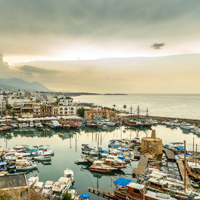Educational System in Cyprus
Summary: The one tip that you hear expats living in Cyprus repeatedly sharing with newcomers is not to buy a home when you first move to Cyprus. Rent for a few months or longer so that you have time to find the right neighborhood. Give yourself time to ensure that Cyprus is right for you for the long term. If you've already taken time to do those things and are ready to take the plunge and become a property owner, here are tips about buying a home in Cyprus.
Cyprus, an island country in the Eastern Mediterranean, offers a robust and diverse educational system that caters to both local and international students. The system is divided into several stages, each designed to provide comprehensive learning experiences that prepare students for the next level of education and eventually, their professional careers. This guide aims to provide expats with a detailed overview of the educational system in Cyprus, including the main stages of education, enrollment procedures, language requirements, and the availability of public, private, and online schools.
What are the main stages of education in Cyprus?
The Cypriot educational system is divided into four main stages: Pre-primary education, Primary education, Secondary education, and Higher education. Each stage is designed to cater to the developmental needs of students at different ages and to prepare them for the next level of education.
Pre-primary Education
Pre-primary education in Cyprus is for children aged 3 to 5. It focuses on the holistic development of children, including their physical, emotional, social, and cognitive growth. While it is not compulsory, the government provides free pre-primary education in public schools.
Primary Education
Primary education is compulsory and caters to children aged 6 to 11. It provides a broad-based education that covers subjects like Mathematics, Science, Social Studies, Art, and the Greek language. English is also introduced as a second language.
Secondary Education
Secondary education is divided into two stages: Gymnasium (lower secondary) for students aged 12 to 15, and Lyceum (upper secondary) for students aged 16 to 18. The curriculum includes core subjects and electives, with a focus on preparing students for higher education or vocational training.
Higher Education
Higher education in Cyprus includes universities and colleges offering undergraduate, postgraduate, and doctoral programs. The country is home to several internationally recognized institutions, attracting students from around the world.
How does a newcomer from a different country enroll their kids in school?
Expats can enroll their children in Cypriot schools by submitting an application to the Ministry of Education and Culture. The application should include the child's birth certificate, passport, proof of residence, and previous school records. Some schools may also require a health certificate.
Can children still learning Greek enroll in a public school?
Yes, children who are still learning Greek can enroll in public schools in Cyprus. These schools offer additional Greek language classes to help non-native speakers catch up with their peers.
Are there public bilingual schools?
While there are no public bilingual schools in Cyprus, many private international schools offer bilingual education. These schools typically teach in English and Greek, and some also offer additional languages.
What types of private schools are common in Cyprus?
Private schools in Cyprus include international schools, religious schools, and bilingual schools. International schools follow various curricula, including the International Baccalaureate (IB), British, and American curricula. Religious schools are usually affiliated with the Orthodox Church, while bilingual schools offer instruction in both Greek and English.
Do expats typically send their children to public or private school?
Many expats in Cyprus choose to send their children to private international schools due to the language barrier in public schools and the diverse curricula offered by these institutions.
How expensive are Private schools in Cyprus?
Private school fees in Cyprus can vary widely, depending on the school and the curriculum. On average, annual fees can range from €5,000 to €10,000. Some schools may also charge additional fees for enrollment, textbooks, and extracurricular activities.
Are you allowed to homeschool while living in Cyprus?
Yes, homeschooling is legal in Cyprus. However, parents must follow the national curriculum and are subject to regular inspections by the Ministry of Education and Culture to ensure that their children are receiving an adequate education.
May kids attend online school instead of a local school while living in Cyprus?
Yes, online schooling is an option in Cyprus. However, it is important to ensure that the online school is accredited and that it meets the educational standards set by the Cypriot Ministry of Education and Culture.
About the Author
 Joshua Wood, LPC joined Expat Exchange in 2000 and serves as one of its Co-Presidents. He is also one of the Founders of Digital Nomad Exchange. Prior to Expat Exchange, Joshua worked for NBC Cable (MSNBC and CNBC
Primetime). Joshua has a BA from Syracuse and a Master's in Clinical and Counseling Psychology from Fairleigh Dickinson University. Mr. Wood is also a licensed counselor and psychotherapist.
Joshua Wood, LPC joined Expat Exchange in 2000 and serves as one of its Co-Presidents. He is also one of the Founders of Digital Nomad Exchange. Prior to Expat Exchange, Joshua worked for NBC Cable (MSNBC and CNBC
Primetime). Joshua has a BA from Syracuse and a Master's in Clinical and Counseling Psychology from Fairleigh Dickinson University. Mr. Wood is also a licensed counselor and psychotherapist.
Some of Joshua's articles include Pros and Cons of Living in Portugal, 10 Best Places to Live in Ireland and Pros and Cons of Living in Uruguay. Connect with Joshua on LinkedIn.
Additional Information:
- Cyprus Guide
- Healthcare & Health Insurance in Cyprus
- Members Talk about Healthcare & Health Insurance in Cyprus
- Best Places to Live in Cyprus
- Real Estate in Cyprus
- Guide to Real Estate in Cyprus
- Pros & Cons of Living in Cyprus
- Cost of Living in Cyprus
- Guide to Residency in Cyprus
- Pros and Cons of Living in Cyprus 2025




